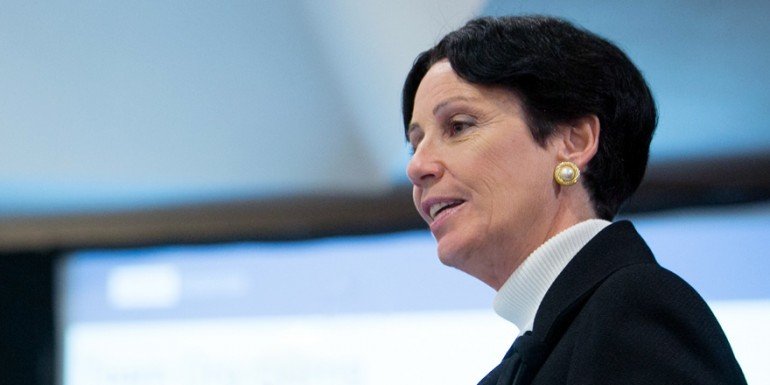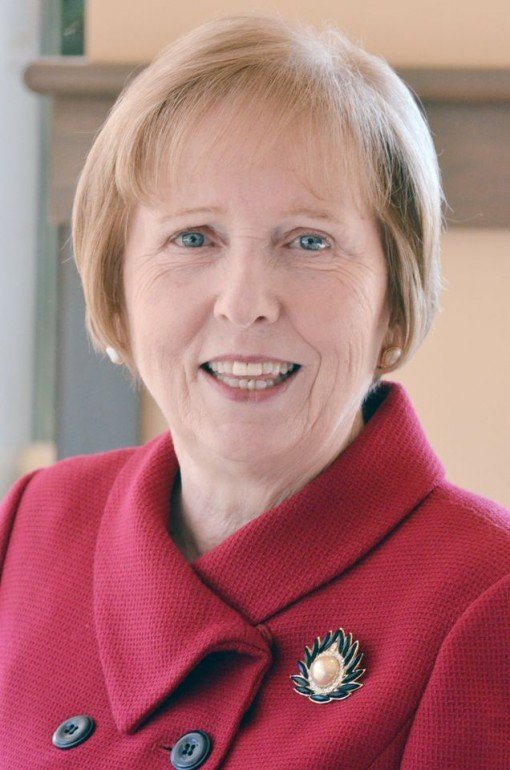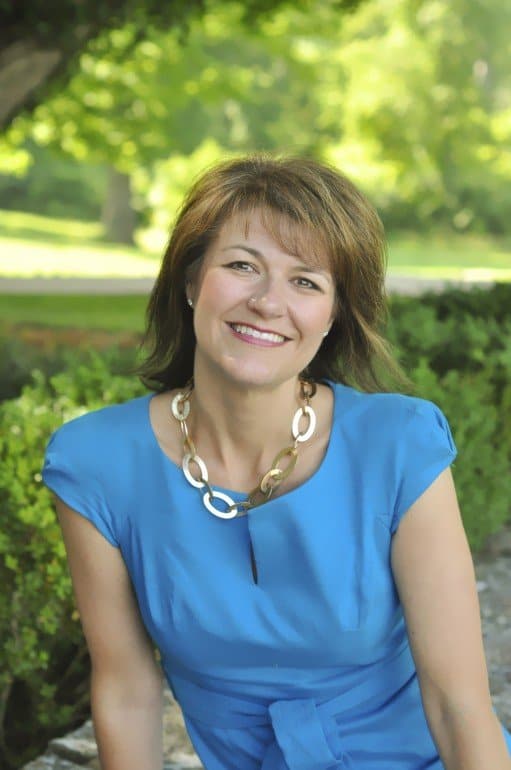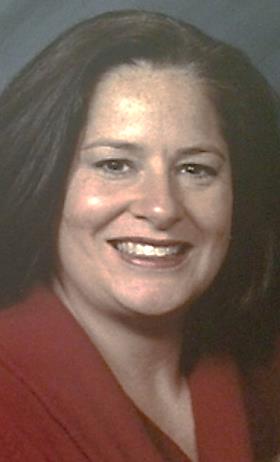We asked five of the finalists nominated in the Excellence in Advocacy Awards, at the Professional Women in Advocacy Conference due to take place in Washington, D.C. next week, to share their top tips on what they’ve learned over a combined 100+ years as advocates.

Carol Kelly
Senior Vice President of Government Affairs and Public Policy
National Association of Chain Drug Stores
For the past 35 years Kelly worked for the U.S. Department of Health and Human Services during the Reagan and Bush administrations, the health insurance industry, the hospital industry, and the Advanced Medical Technology Association. She’s worked at the National Association of Chain Drug Stores, for the past eight years.
Be prepared and be truthful at all times
“Know your topic and your audience. Be honest with the people you’re dealing with.”
Recognize that advocacy is changing
“There was a very different power structure when I first came to Washington in the 1970s. I worked for the domestic textile industry, and literally all my boss had to do was call up three or four chairmen of committees, do his advocacy work, and we were finished for the day. Contrast that with how open the process is today. With social media, grassroots, political action committee activities, and communications strategies, the whole nature of advocacy has changed. Advocates need to understand the changing nature of advocacy, and pull all those levers, because I can tell you that everyone else who is working in advocacy is doing the same.”
Enjoy the journey
“I was always in such a hurry for my next step. When I look back, it looks like a clear and straight path, which at the time I probably wasn’t seeing. I wish I’d enjoyed the journey more along the way and been in less of a hurry.”
Jackie Gillan
President
Advocates for Highway and Auto Safety
Jackie Gillan came on a visit to see friends in Washington, D.C. in 1975, and stayed. She took a job as a legislative aid working on housing, transportation, and economic issues and worked for the U.S. Department of Transportation, New Jersey’s Secretary of Transportation, and as a transportation lobbyist for the governor of Ohio. At the Advocates for Highway and Auto Safety, a broad coalition of consumer health and safety and insurance companies interested in passing state and federal highway safety laws, she’s advocated for legislation related to seatbelts, airbags, child seats, motorcoach and truck safety, and much more.
Be creative in your campaigns and partnerships
“Even though we’re a small organization, we take on a lot of well-financed industries,” she says. “We try to look for different tools to promote things. I always look for unusual partners. Some of our most successful initiatives have been the result of working with other groups that don’t appear to have a direct interest in highway safety, but do.
Out of ideas for your next advocacy campaign? Check out our 50 Stealable Grassroots Marketing Campaigns
There are no permanent friends, and there are no permanent enemies when you’re working on public policy issues,” she advises. “Even though you may be opposing someone one day, they may end up helping you later. Never think that a member won’t support you because of one position they’ve taken.”
Teach people how to tell their stories
“Thirty three thousand people die every year in highway crashes. Many of their friends and family members turn to advocacy work as a way to turn that sorrow into something very positive. We tell them, be truthful, tell your own story, and look for opportunities to work with your elected representatives.” Those personal stories and connections are more powerful than the best facts and statistics your organization can provide.”
Have a sense of humor
“Transportation was, and still is, a fairly male-dominated field. That’s changing, but when I went to the Department of Transportation, I was working with people who weren’t used to working with a woman – especially a woman who was going to be a lobbyist up on the hill. My advice to my daughter and her friends is, never take things personally. If you didn’t have a sense of humor in these advocacy jobs, it can be a very unhappy situation. We’re fighting hard, and we’re fighting against formidable odds. I take my job very seriously, but I try not to take myself seriously.”
Have confidence in yourself and your decision-making
“Sometimes when you’re in the heat of these fights on the hill, and you don’t win, you walk away and second-guess what you did. It’s very easy for me to look back now and see this, but early in my career, it might have been easier for me if I’d realized you do the best you can and you shouldn’t spend a lot of unnecessary energy second-guessing yourself. You do want to review and do things better. But realize there’s always another day and another fight.”
Danielle Clore
Executive Director
During the 2015 state legislative session, the KNN championed a bill to set up a Government-Nonprofit Contracting Reform taskforce that received the unanimous support of both chambers. Research by the Urban Institute had put Kentucky as one of the worst offenders for contracting with nonprofits. The task force will help government and nonprofits collaborate to streamline their working relationship and reduce duplication.
Leverage your fundraising and relationship-building skills
“Because my background is in fundraising and nonprofits, and we’re all about making connections and building relationships, those skills came very naturally to me. It wasn’t challenging for me to sit down and lay out why we were there and what we needed.”
Be a resource for information and knowledge
“It’s really critical for anyone doing this work to own that you are the expert in your subject matter. Once I owned that and recognized that I was there to provide legislators with the information they needed to make good decisions, that intimidation factor really went away. In Kentucky, where these are only part-time legislators, the volume of information they are trying to digest and make decisions about really blew me away. Be clear, concise, honest and factual.”
Surround yourself with a strong team
“The work we did in such a short period of time would not have been possible without a really strong team. I surrounded myself with a team of people who knew what they were doing and who wanted to take someone like me under their wing and show me how this work was done. I’ve been incredibly blessed with a wonderful public policy committee, my board of directors, and my colleagues at the National Council of Nonprofits.”
Senior Director, Government Relations
American Iron and Steel Institute
Before joining the American Iron and Steel Institute in 2009, DeBrosse spent nine years honing her legislative chops in the offices of two Ohio Congressional members. She was nominated for the Excellence in Advocacy Award because of her strong efforts on the Leveling the Playing Field Act and Trade Promotion Authority.
Treat people well
“I think being a good advocate is tied to how you treat and work with people, both within your organization and with those to whom your advocacy is directed. It’s very important to always be responsive and approachable, have reliable facts, know your audience and identify areas where your agenda priorities overlap with theirs. Be constantly engaged, even if you don’t have a clear ask at a particular moment. All of these factors help build stronger relationships for when action may be needed.”
Understand the needs of the people you’re advocating for
“Knowing as much as you can about your stakeholders is key to accurately and successfully advocating on their behalf. Learn about your stakeholders’ positions on issues, both historic and current. Understand their footprint across the U.S. and within specific Congressional districts. Have a thorough understanding of their day-to-day operations and who their natural allies and opponents are. Recognize what level of engagement they like to have on advocacy issues.”
Senior Program Manager, Teen Driving Initiative
Kathy Bernstein Harris was an advocate for the AFL-CIO Community Services Program in Chicago, where she worked on issues and helped people weather changes such as strikes and layoffs. At the National Safety Council, her job is focused on providing education to parents and young people, and promoting state policies such as graduated driver’s license programs that help protect teen drivers.
Know and tell your story
“Know your story. Have your evidence and your research so ingrained in everything you say, that you’re not making stuff up.”
Give your story the time it deserves
“We’re a bulleted society. We send communications via bullets. But when you’re talking about something you’re passionate about, you have to tell the whole story. Let your passion for the issue shine through.”
Understand that politics sometimes trumps policy
“Politics will mess with common sense. I don’t take things so personally now.”
Find a good mentor
“Find a person who’s been at it for a while and keep talking to them and asking questions. The woman who taught me the most, I told from the get-go, ‘I know nothing’. I know how to get people to talk to each other, but I don’t know anything about this issue. Please teach me. Being that upfront and honest about my situation is what helped me find my mentor.”





